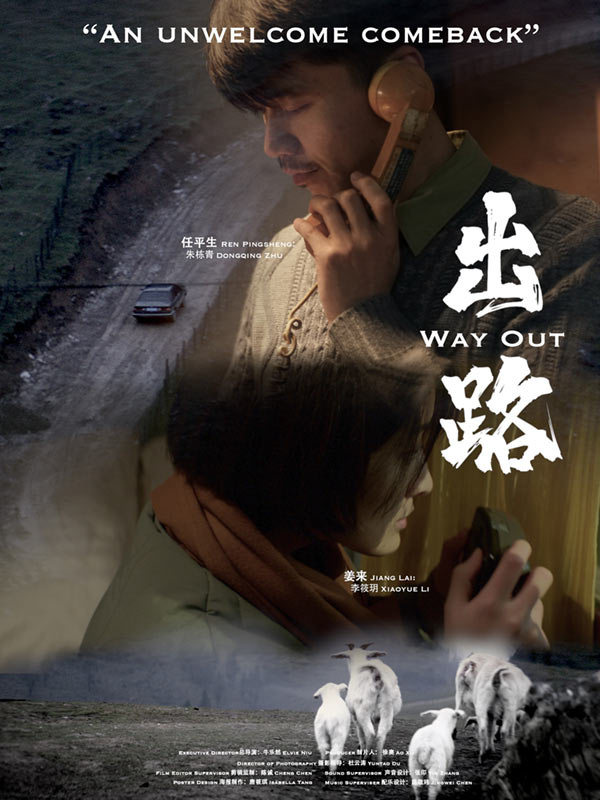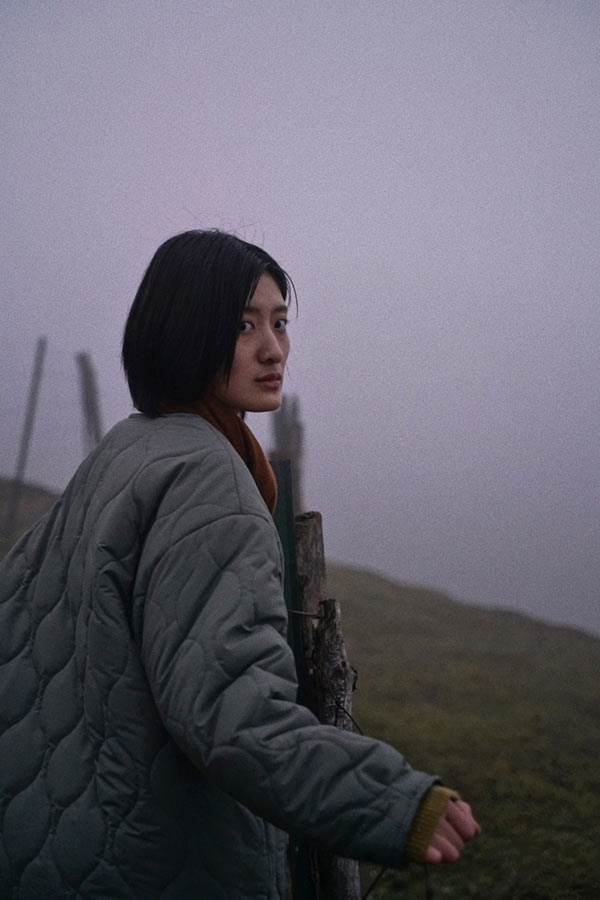BFA Filmmaking NYFA alum, Elvie Niu takes her place as a semi-finalist in this year’s Student Academy Awards. Her captivating short, Way Out (2021) explores feelings of isolation and abandonment felt by protagonist Jiang Lai after she is accused of murdering her father. The ongoing investigation impacts her strained relationship with her mother, who is distant and cold.

The film captures family tension with visual metaphors of loneliness and rejection and a backdrop of rural 1990s China. During this time, family values were considered part of a family’s moral upstanding within a community. In front of this socio-political front, Niu captures a series of breathtaking shots including China’s rural hillsides and farm animals. Medium and close-up shots reveal facial expressions that imply the failing relationship between the main character and her mother.

The one character whom Jiang does seem to trust is the small-town police investigator, Ren Pingsheng, who represents the sliver of sanity Jiang needs to escape her turmoil.

Based on her own childhood experiences, director Niu’s Way Out is a deeply personal story. After her parents separated during her youth, Niu faced an upbringing fraught with emotional distance, trauma, and feelings of insecurity. Evident in the short film’s visual depiction of gloom, Niu captures important scenes with low lighting, exaggerated shadows, and dark tints to emphasize isolation.
According to Niu, “The basis for my creation comes from sincerity, not just for the audience, but for myself.”
Before a student with the New York Film Academy (NYFA), Elvie was a Producer of a video promotion for Yao Ming’s Charity. The video promoted the organization’s ongoing efforts to help Tibetan children keep active with sports. Niu considers herself to be an eastern spirit with a western mind and finds success in projects that delve into urban life but touch on issues that relate back to her past.

A collaborative director and filmmaker, Niu believes in giving her crew creative space. Working closely with her actors, the director takes time to reach an emotional agreement on the art itself before making a process curating emotion.
For emerging filmmakers and students of the craft, Niu offers advice, “Your role as a director is to understand what you’re saying behind the scenes, and ask yourself, ‘does this make sense?’ That will result in the story you want to tell.
